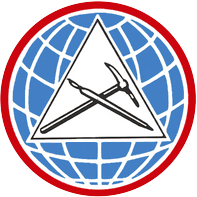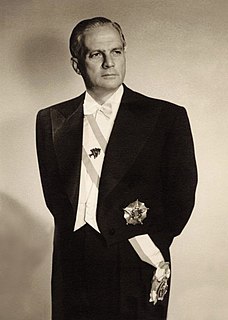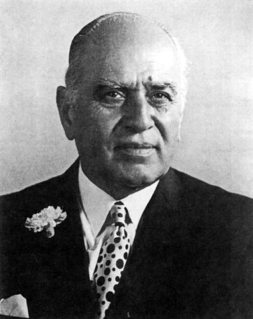Related Research Articles

The Progressive Socialist Party is a Lebanese political party affiliated with the Druze sect. Founded by Kamal Jumblatt in 1949, the party has been led by his son Walid since 1977.

Kamal Fouad Jumblatt was a Lebanese politician who founded the Progressive Socialist Party. He led the National Movement during the civil war against the Lebanese Front. He was a major ally of the Palestine Liberation Organization until his assassination in 1977. He has authored more than 40 books centered on various political, philosophical, literary, religious, medical, social, and economic topics. In September 1972, Kamal Jumblatt received the International Lenin Peace Prize. He is the father of the Lebanese Druze leader Walid Jumblatt and the son in law of the Arab writer and politician Shakib Arslan.

Camille Nimr Chamoun was a Lebanese politician who served as President of Lebanon from 1952 to 1958. He was one of the country's main Christian leaders during most of the Lebanese Civil War (1975–1990).

Saeb Salam was a Lebanese politician, who served as Prime Minister six times between 1952 and 1973. Following his death, the Lebanese daily As-Safir described Salam as "most successful in dealing with the media and in presenting a particular image of himself to people on a daily basis through wearing his customary carnation ... and expounding unforgettable slogans", and that he was Lebanon's most popular prime minister after independence leader Riad Al Solh. A significant aspect of Salam was that, unlike other Lebanese leaders, he did not act as a chief over a particular area in the country. Salam fiercely advocated the unity of Lebanon.

The Toilers League, also designated the Workers League or Ligue des Travailleurs (LT) in French, is a Lebanese left-wing political party founded in Lebanon at the late 1960s and currently led by former Chouf MP Zaher el-Khatib.
Voting to elect eight members of the Lebanese parliament took place in the Beirut I district on March 24, 1968, part of the national general election of that year. The constituency had 98,439 eligible voters, out of whom 28,631 voted. The elections in Beirut I passed smoothly without violent incidents.
Voting to elect three members of the Lebanese parliament took place in the Beirut II district on March 24, 1968, part of the national general election of that year. The constituency had 34,113 eligible voters, out of whom 17,004 voted.
Voting to elect five members of the Lebanese parliament took place in the Beirut III district on March 24, 1968, part of the national general election of that year. The constituency had 75,296 eligible voters, out of whom 30,713 voted.
Voting to elect two members of the Lebanese parliament took place in the Bsharri District in 1968, part of the national general election of that year. Both of the seats of the constituency were earmarked for the Maronite community. Bsharri District had 32,814 eligible voters, out of whom 16,064 voted. Three separate tickets contested the election. The election was carried out without reports of violent incidents.
Voting to elect five members of the Lebanese parliament took place in Tripoli City in 1968, part of the national general election of that year. Four of the seats of the constituency were earmarked for the Sunni Muslim community, whilst the fifth seat was allocated to the Greek Orthodox community. The Tripoli City constituency had 64,913 eligible voters, out of whom 22,813 voted.
Voting to elect two members of the Lebanese parliament took place in the Batroun District in northern Lebanon in 1968, part of the national general election of that year. Both of the seats of the constituency were earmarked for the Maronite community. Batroun District had 24,331 eligible voters, out of whom 9,458 voted. It had the lowest number of eligible as well as actual voters of all constituencies in the country. Seven candidates contested the election. The constituency witnessed a clash of both organized political parties as well as family interests.
Voting to elect three members of the Lebanese parliament took place in the Zgharta District in northern Lebanon in 1968, part of the national general election of that year. All of the seats of the constituency were earmarked for the Maronite community. Zgharta District had 35,099 eligible voters, out of whom 13,412 voted.
Voting to elect four members of the Lebanese parliament took place in the Akkar District in 1968, part of the national general election of that year. Two of the seats of the constituency were earmarked for the Sunni Muslim community, one seat for the Greek Orthodox and one for the Maronites. Akkar was the most underdeveloped area of northern Lebanon, politically dominated by landlords. The elections were marred by accusations of vote-buying and minor violent incidents. The constituency had 71,899 eligible voters, out of whom 30,282 voted.
Voting to elect eight members of the Lebanese parliament took place in Chouf District on April 7, 1968, as part of the national general election of that year. Three of the seats of the constituency were earmarked for the Maronite community, two for the Sunni Muslim, two for the Druze whilst the last seat was allocated to the Greek Catholics. The Chouf District constituency had 78,557 eligible voters, out of whom 46,056 voted. All in all Chouf District was one of the most hotly contested constituencies in the election, being the home turf of Camille Chamoun and Kamal Jumblatt. The situation in the constituency was tense, but the polls went through without violent incidents. However, Jumblatt did accuse 'a large embassy in Beirut' of buying votes for Chamoun.
Anwar al-Khatib was a Lebanese Sunni Muslim lawyer, politician and former cabinet minister.
The Progressive Arab Front was a political coalition in Lebanon, founded by Kamal Jumblatt in October 1961. The coalition was founded in response to the break-up of the United Arab Republic. It opposed the Syrian separatism and called for support to Gamal Abdel Nasser. The Progressive Arab Front consisted of the Progressive Socialist Party and the Arab Nationalist Movement. It largely corresponded to the parliamentary National Struggle Front, but through the Progressive Arab Front the parliamentarian Issam al-Hajjar joined the six PSP members in the Chamber of Deputies. The program of the Progressive Arab Front was based on Arab nationalism and socialism.
Salim Abd an-Nur, a Lebanese Greek Catholic politician. He graduated from the Jesuit School in Beirut, after which he pursued a business career. His political life began in 1959, when he successfully ran for parliament in the by-poll in Chouf District after the killing on the incumbent parliamentarian Na'im Mghabghab. He was re-elected in 1960 as a Progressive Socialist Party candidate, but was defeated in 1964 and 1968. He managed to retake his seat in the 1972 elections.
Voting to elect four members of the Lebanese parliament took place in the predominantly Shia Muslim Marjeyoun-Hasbaya constituency in southern Lebanon on March 31, 1968, part of the national general election of that year. Two of the seats of the constituency were earmarked for the Shia Muslim community, one for the Sunni Muslims and one for the Greek Orthodox. The constituency had 45,849 eligible voters, out of whom 23,224 voted. The polling day was marred by heavy rains.

Beirut I was a parliamentary constituency in Lebanon. It covered six neighbourhoods (quartiers) of the capital; Achrafieh, Medawar, Minet El Hosn, Port, Rmeil and Saifi. It elected eight Christian parliamentarians; three Armenian Orthodox, one Armenian Catholic, one Protestant, one Maronite, one Greek Orthodox and one Greek Catholic. This constituency was used in the 1960, 1964, 1968 and 1972 elections.
Zaher el-Khatib is a Lebanese Sunni politician.
References
- 1 2 3 4 5 6 Orient, Vol. 11–14 . Deutsches Orient-Institut, 1970[?]. p. 23
- 1 2 3 ARR: Arab Report and Record . Economic Features, Limited, 1971. p. 33
- 1 2 3 4 5 6 7 Middle East Record, Vol. 5 . Mekhon Shiloaḥ le-ḥeḳer ha-Mizraḥ ha-tikhon ṿe-Afriḳah, Ḥevrah ha-Mizraḥit ha-Yiśreʼelit, Merkaz le-meḥḳar ʻal shem Reʼuven Shiloaḥ. Israel Oriental Society, Reuven Shiloah Research Center, 1977. p. 949
- 1 2 Zuwiyya, Jalal. The Parliamentary Election of Lebanon 1968 . Leiden: Brill, 1972. p. 70-72